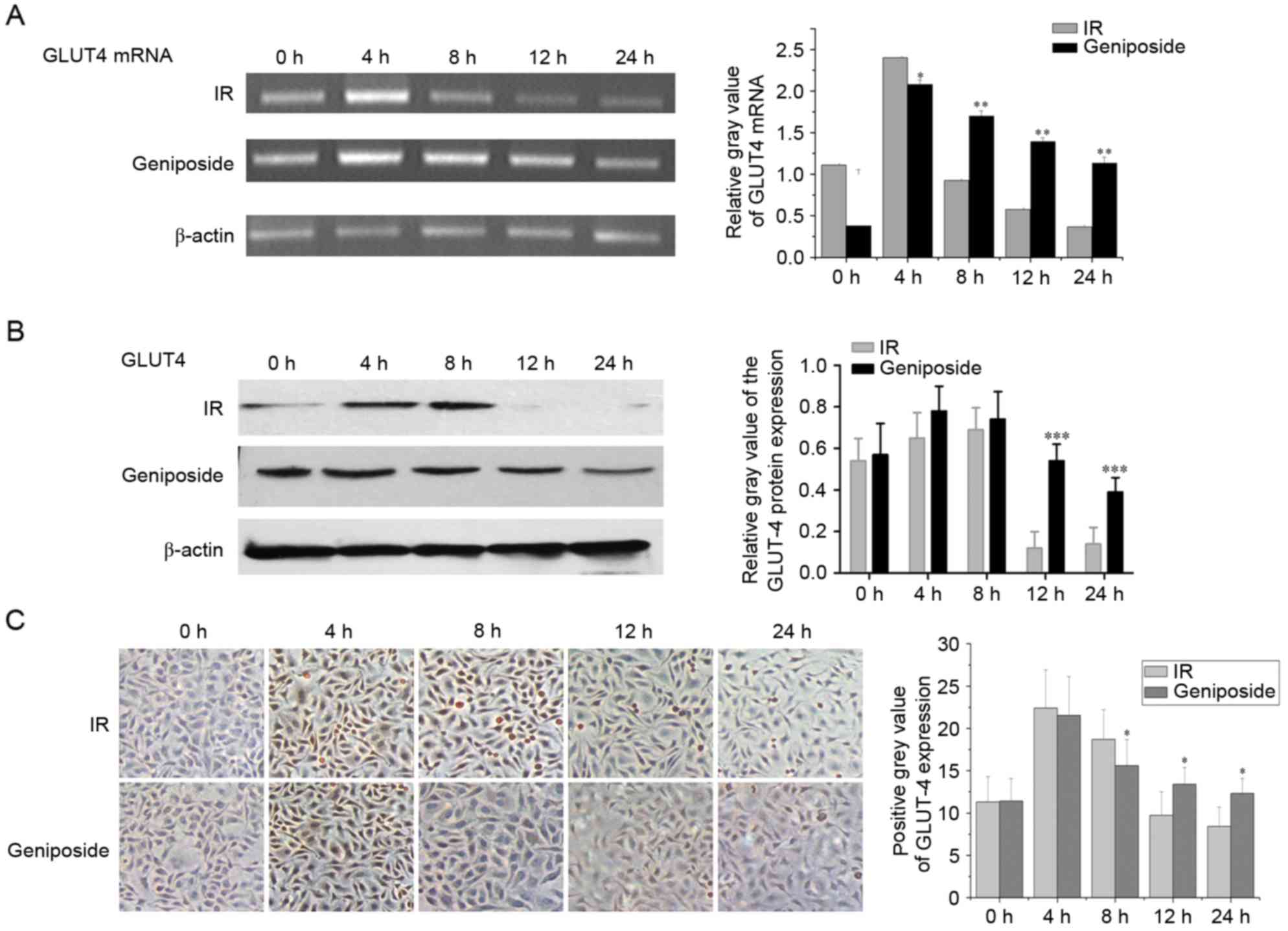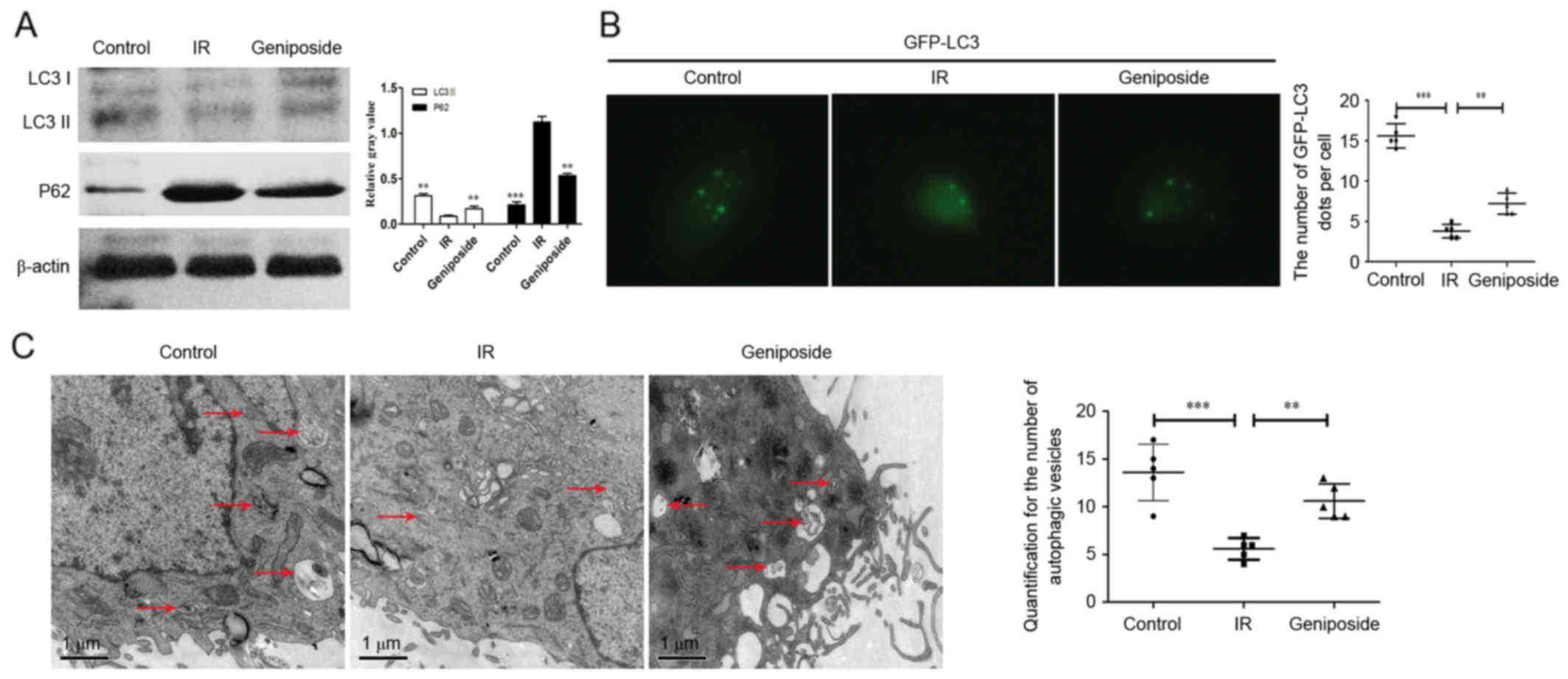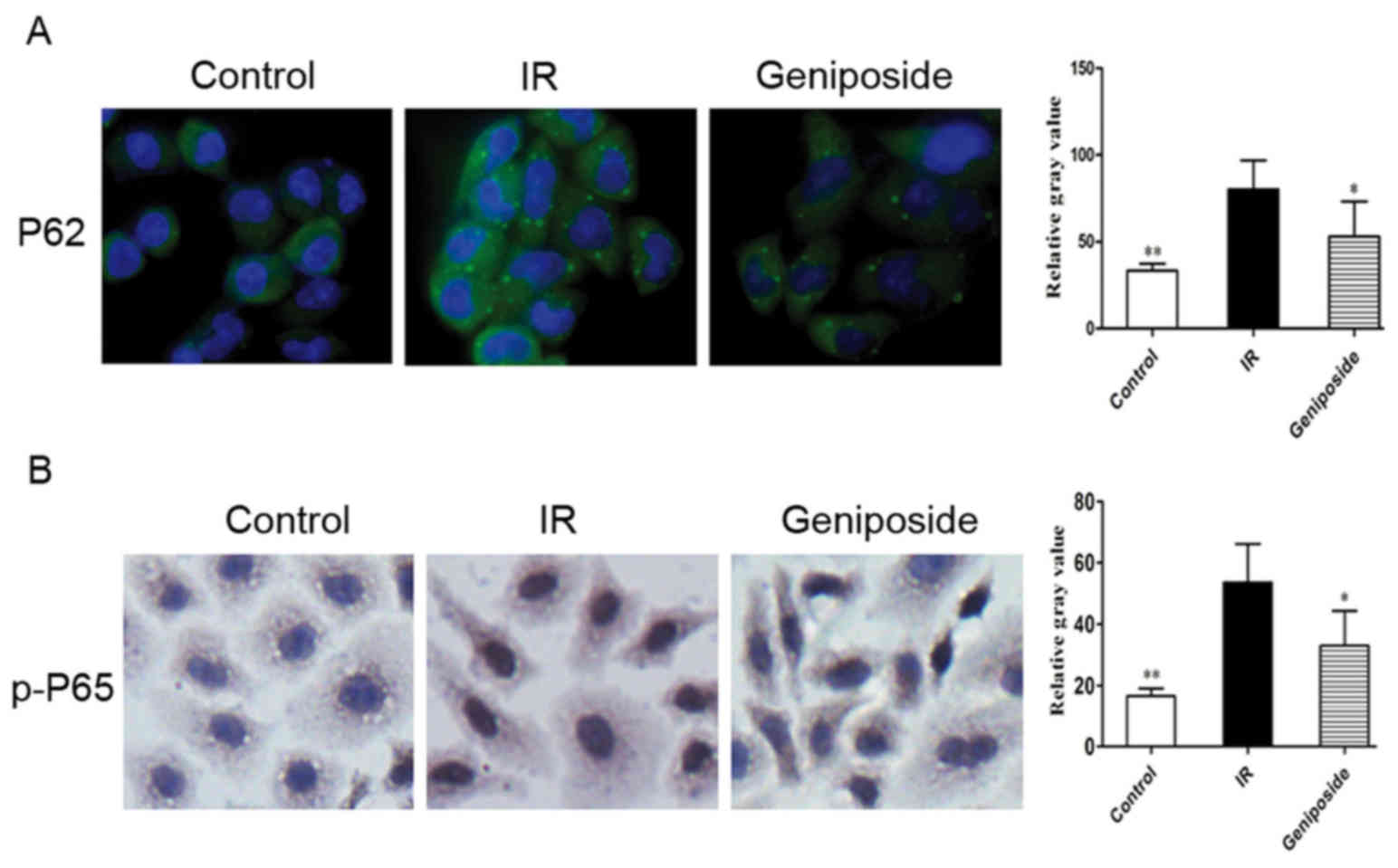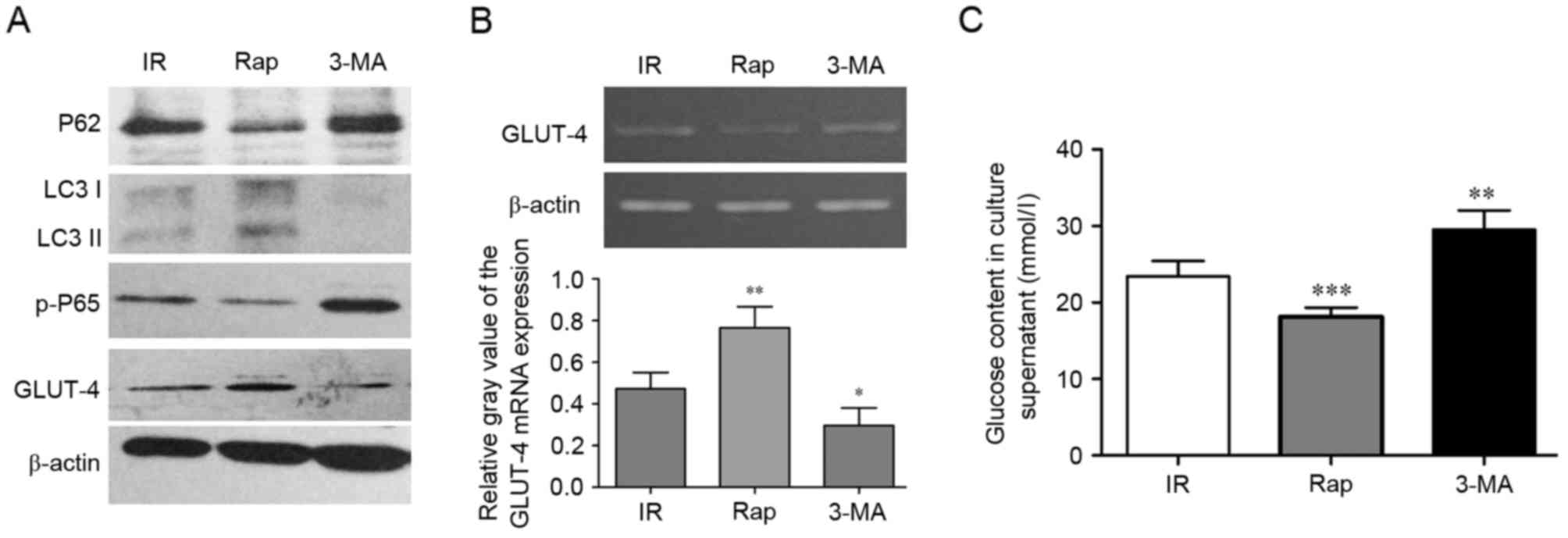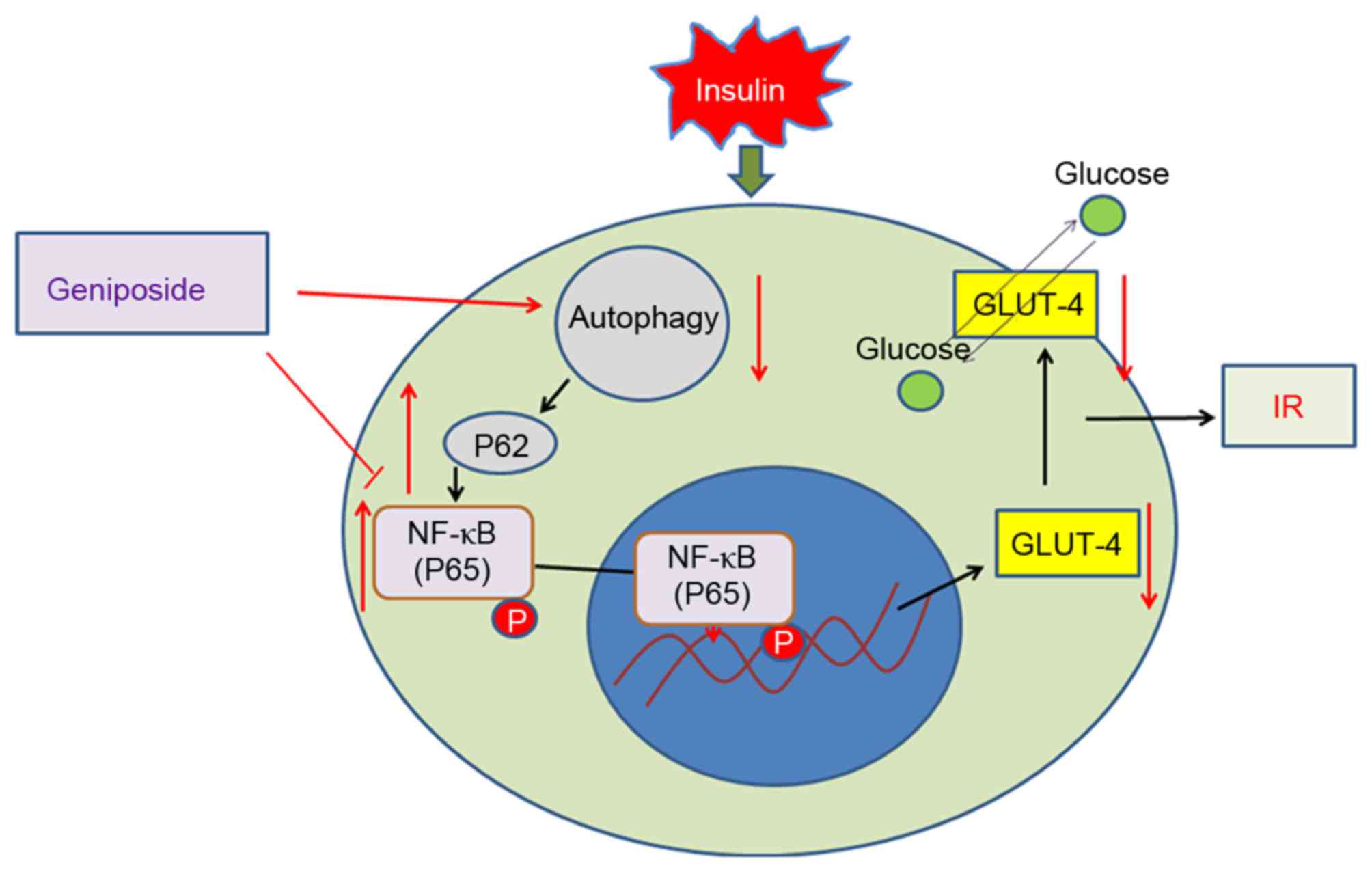|
1
|
Lillioja S, Mott DM, Spraul M, Ferraro R,
Foley JE, Ravussin E, Knowler WC, Bennett PH and Bogardus C:
Insulin resistance and insulin secretory dysfunction as precursors
of non-insulin-dependent diabetes mellitus. Prospective studies of
pima indians. N Engl J Med. 329:1988–1992. 1993. View Article : Google Scholar : PubMed/NCBI
|
|
2
|
Kadowaki T: Insights into insulin
resistance and type 2 diabetes from knockout mouse models. J Clin
Invest. 106:459–465. 2000. View
Article : Google Scholar : PubMed/NCBI
|
|
3
|
Yin XM, Ding WX and Gao W: Autophagy in
the liver. Hepatology. 47:1773–1785. 2008. View Article : Google Scholar : PubMed/NCBI
|
|
4
|
Thapalia BA, Zhou Z and Lin X: Autophagy,
a process within reperfusion injury: An update. Int J Clin Exp
Pathol. 7:8322–8341. 2014.PubMed/NCBI
|
|
5
|
Hashimoto S: Autophagy in the respiratory
diseases. Respir Investig. 54:383–384. 2016. View Article : Google Scholar : PubMed/NCBI
|
|
6
|
Vucicevic L, Misirkic-Marjanovic M,
Paunovic V, Kravic-Stevovic T, Martinovic T, Ciric D, Maric N,
Petricevic S, Harhaji-Trajkovic L, Bumbasirevic V and Trajkovic V:
Autophagy inhibition uncovers the neurotoxic action of the
antipsychotic drug olanzapine. Autophagy. 10:2362–2378. 2014.
View Article : Google Scholar : PubMed/NCBI
|
|
7
|
Rovira J, Ramirez-Bajo MJ, Banon-Maneus E,
Moya-Rull D, Ventura-Aguiar P, Hierro-Garcia N, Lazo-Rodriguez M,
Revuelta I, Torres A, Oppenheimer F, et al: mTOR inhibition:
Reduced insulin secretion and sensitivity in a rat model of
metabolic syndrome. Transplant Direct. 2:e652016.PubMed/NCBI
|
|
8
|
Wang Q and Ren J: mTOR-Independent
autophagy inducer trehalose rescues against insulin
resistance-induced myocardial contractile anomalies: Role of p38
MAPK and Foxo1. Pharmacol Res. 111:357–373. 2016. View Article : Google Scholar : PubMed/NCBI
|
|
9
|
Sarparanta J, Garcia-Macia M and Singh R:
Autophagy and mitochondria in obesity and type 2 diabetes. Curr
Diabetes Rev. 2016.
|
|
10
|
Roccisana J, Sadler JB, Bryant NJ and
Gould GW: Sorting of GLUT4 into its insulin-sensitive store
requires the Sec1/Munc18 protein mVps45. Mol Biol Cell.
24:2389–2397. 2013. View Article : Google Scholar : PubMed/NCBI
|
|
11
|
Gaster M, Staehr P, Beck-Nielsen H,
Schrøder HD and Handberg A: GLUT4 is reduced in slow muscle fibers
of type 2 diabetic patients: Is insulin resistance in type 2
diabetes a slow, type 1 fiber disease? Diabetes. 50:1324–1329.
2001. View Article : Google Scholar : PubMed/NCBI
|
|
12
|
Schläfli AM, Adams O, Galván JA, Gugger M,
Savic S, Bubendorf L, Schmid RA, Becker KF, Tschan MP, Langer R and
Berezowska S: Prognostic value of the autophagy markers LC3 and
p62/SQSTM1 in early-stage non-small cell lung cancer. Oncotarget.
7:39544–39555. 2016. View Article : Google Scholar : PubMed/NCBI
|
|
13
|
Xi G, Shen X, Wai C, Vilas CK and Clemmons
DR: Hyperglycemia stimulates p62/PKCζ interaction, which mediates
NF-κB activation, increased Nox4 expression, and inflammatory
cytokine activation in vascular smooth muscle. FASEB J.
29:4772–4782. 2015. View Article : Google Scholar : PubMed/NCBI
|
|
14
|
Guo LX, Xia ZN, Gao X, Yin F and Liu JH:
Glucagon-like peptide 1 receptor plays a critical role in
geniposide-regulated insulin secretion in INS-1 cells. Acta
Pharmacol Sin. 33:237–241. 2012. View Article : Google Scholar : PubMed/NCBI
|
|
15
|
Zhang WY, Lee JJ, Kim Y, Kim IS, Park JS
and Myung CS: Amelioration of insulin resistance by scopoletin in
high-glucose-induced, insulin-resistant HepG2 cells. Horm Metab
Res. 42:930–935. 2010. View Article : Google Scholar : PubMed/NCBI
|
|
16
|
Kim HI and Ahn YH: Role of peroxisome
proliferator-activated receptor-gamma in the glucose-sensing
apparatus of liver and beta-cells. Diabetes. 53 Suppl 1:S60–S65.
2004. View Article : Google Scholar : PubMed/NCBI
|
|
17
|
Leguisamo NM, Lehnen AM, Machado UF,
Okamoto MM, Markoski MM, Pinto GH and Schaan BD: GLUT4 content
decreases along with insulin resistance and high levels of
inflammatory markers in rats with metabolic syndrome. Cardiovasc
Diabetol. 11:1002012. View Article : Google Scholar : PubMed/NCBI
|
|
18
|
Zhang Y, Xia Z, Liu J and Yin F: Cell
signaling mechanisms by which geniposide regulates
insulin-degrading enzyme expression in primary cortical neurons.
CNS Neurol Disord Drug Targets. 14:370–377. 2015. View Article : Google Scholar : PubMed/NCBI
|
|
19
|
Sriwijitkamol A, Christ-Roberts C, Berria
R, Eagan P, Pratipanawatr T, DeFronzo RA, Mandarino LJ and Musi N:
Reduced skeletal muscle inhibitor of kappaB beta content is
associated with insulin resistance in subjects with type 2
diabetes: Reversal by exercise training. Diabetes. 55:760–767.
2006. View Article : Google Scholar : PubMed/NCBI
|
|
20
|
Cai D, Yuan M, Frantz DF, Melendez PA,
Hansen L, Lee J and Shoelson SE: Local and systemic insulin
resistance resulting from hepatic activation of IKK-beta and
NF-kappaB. Nat Med. 11:183–190. 2005. View
Article : Google Scholar : PubMed/NCBI
|
|
21
|
Hommelberg PP, Plat J, Remels AH, van
Essen AL, Kelders MC, Mensink RP, Schols AM and Langen RC:
Trans-10, cis-12 conjugated linoleic acid inhibits skeletal muscle
differentiation and GLUT4 expression independently from NF-κB
activation. Mol Nutr Food Res. 54:1763–1772. 2010. View Article : Google Scholar : PubMed/NCBI
|
|
22
|
Koo HJ, Song YS, Kim HJ, Lee YH, Hong SM,
Kim SJ, Kim BC, Jin C, Lim CJ and Park EH: Antiinflammatory effects
of genipin, an active principle of gardenia. Eur J Pharmacol.
495:201–208. 2004. View Article : Google Scholar : PubMed/NCBI
|
|
23
|
Noguchi Y, Yoshikawa T, Marat D, Doi C,
Makino T, Fukuzawa K, Tsuburaya A, Satoh S, Ito T and Mitsuse S:
Insulin resistance in cancer patients is associated with enhanced
tumor necrosis factor-alpha expression in skeletal muscle. Biochem
Biophys Res Commun. 253:887–892. 1998. View Article : Google Scholar : PubMed/NCBI
|
|
24
|
Ding Y, Zhang T, Tao JS, Zhang LY, Shi JR
and Ji G: Potential hepatotoxicity of geniposide, the major iridoid
glycoside in dried ripe fruits of Gardenia jasminoides (Zhi-zi).
Nat Prod Res. 27:929–933. 2013. View Article : Google Scholar : PubMed/NCBI
|
|
25
|
Liu J, Guo L, Yin F, Zhang Y, Liu Z and
Wang Y: Geniposide regulates glucose-stimulated insulin secretion
possibly through controlling glucose metabolism in INS-1 cells.
PLoS One. 8:e783152013. View Article : Google Scholar : PubMed/NCBI
|
|
26
|
Cicchini M, Chakrabarti R, Kongara S,
Price S, Nahar R, Lozy F, Zhong H, Vazquez A, Kang Y and Karantza
V: Autophagy regulator BECN1 suppresses mammary tumorigenesis
driven by WNT1 activation and following parity. Autophagy.
10:2036–2052. 2014. View Article : Google Scholar : PubMed/NCBI
|
|
27
|
Nakai A, Yamaguchi O, Takeda T, Higuchi Y,
Hikoso S, Taniike M, Omiya S, Mizote I, Matsumura Y, Asahi M, et
al: The role of autophagy in cardiomyocytes in the basal state and
in response to hemodynamic stress. Nat Med. 13:619–624. 2007.
View Article : Google Scholar : PubMed/NCBI
|
|
28
|
Nemchenko A, Chiong M, Turer A, Lavandero
S and Hill JA: Autophagy as a therapeutic target in cardiovascular
disease. J Mol Cell Cardiol. 51:584–593. 2011. View Article : Google Scholar : PubMed/NCBI
|















